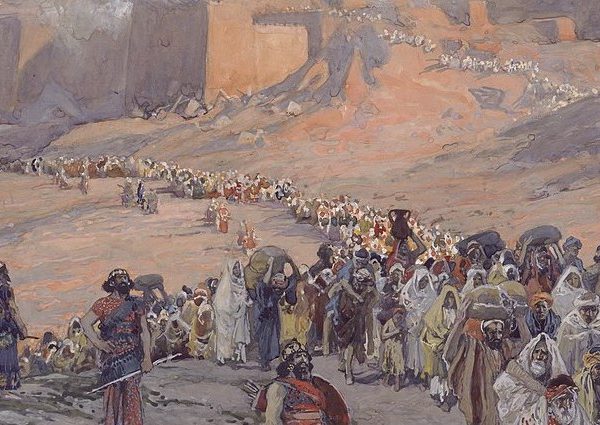
Joseph knows that this situation with Mary is not about legalities, or honor or shame or what other people may think or say; it is about God bringing Christ to the world. All that matters is God’s call. Joseph honors Mary, and their marriage, this family, as the opportunity God has created to bring hope, salvation to all the world.

The greatest potential implication of Isaiah 11:1–10 lies in the way it disrupts our expectations of justice, equality, and peace by framing of our narratives of the perfect society and unsullied nature. Rather than Utopia, the passage offers us a vision of a perfectly imperfect world order in absolute harmony.

Advent is the season between the comings, the space of absence in which we await the Divine visitation. Might it also be a space of resistance, wherein we reimagine our identities and, in so doing, perhaps even become the kind of presence in the world we so desire?

Compassion and solidarity make for a powerful bond between God and humanity.

Panic leads us into the fruit of the flesh rather than living out the fruit of the Spirit. It distorts the Christian message and often leaves us like burning husks on the side of the road.

Our only hope is that the God who will raise us, the God whose justice is glorified, will eventually make all things right. Our trust in our just God should be evident in our words and our works as we live out the proclamation of the gospel.

The only true way to achieve success—even success in bringing justice to those who seek it, redistributing wealth towards the poor, and divesting oppressive hierarchies of their power—is to place our faith in God’s will for the world, and to follow God’s will for our lives, no matter where it leads.

The Prophet Jeremiah announced a gift that refers not only to the repopulating of the land after the exile, but also speaks about the renewal of hearts, a covenantal gift rooted in God that would renew the people of God at all levels of society.

Jeremiah’s letter is a bold admonishment to remember that we are all, together, members of the political community. Wherever we find ourselves, we must not forget that there is such a thing as the common good.


